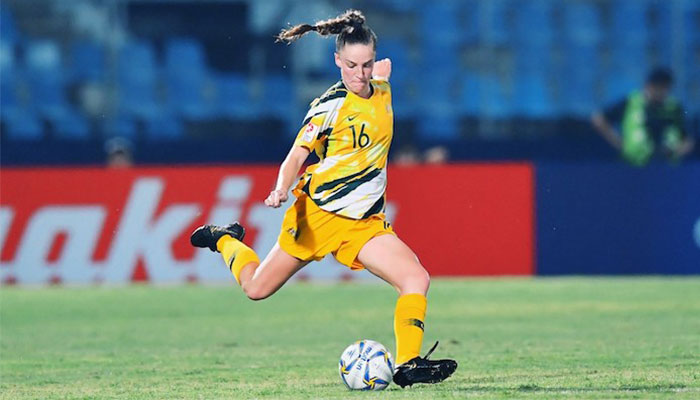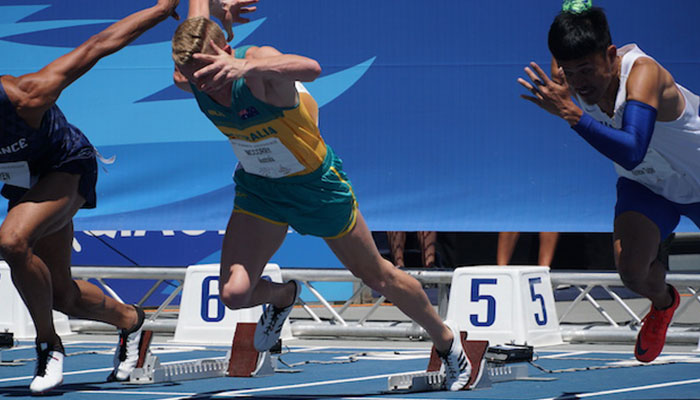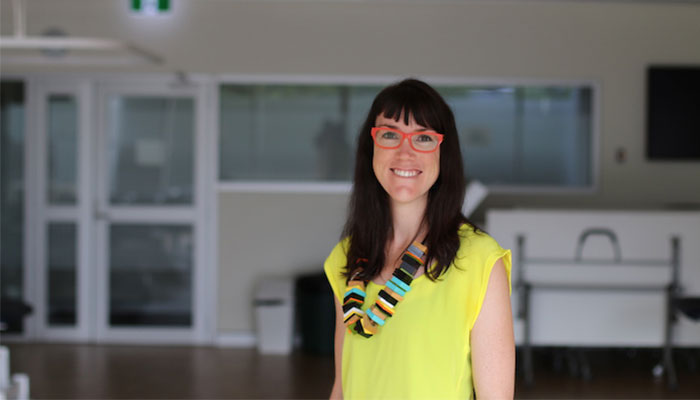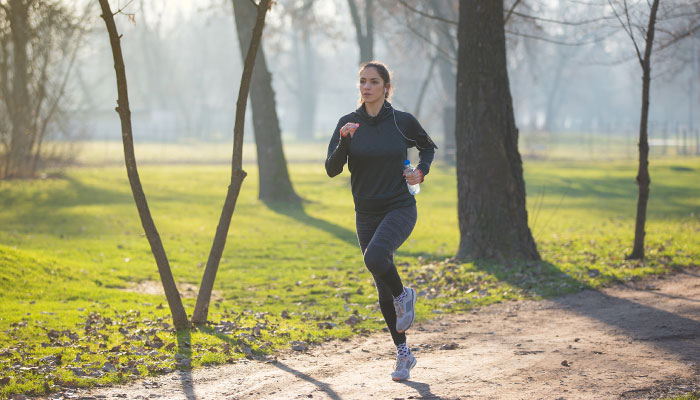Postponing the Tokyo Olympics to 2021 has brought unprecedented challenges for athletes who have planned their training over years to peak at the right time, says Dr Kathryn Mills, a Senior Lecturer in Physiotherapy at Macquarie University’s Department of Health Professions.

Game off: Olympic football hopeful and Macquarie University psychology student Deborah-Anne de la Harpe says competitors have felt crushing disappointment.
In March, four months out from the 2020 Olympics when the coronavirus pandemic forced the Games' postponement, most athletes would have spent many months training hard and would have been planning to strategically cut back over the following two months, she says.
“The Olympics have been cancelled three times, but never delayed. This is going to be very different from every other experience, with athletes coming back after sometimes months of isolation,” says Mills.
“There’s no research on how to come down from this unique context – because the level of physical and mental fitness required to compete at the Olympics and cope with the pressure and hype is unrivalled by any other sporting event in the world.”
Injury risk
Mills says that the postponement will have thrown out carefully honed schedules and could raise injury risks for athletes competing next year.
The extraordinary circumstances in the face of global pandemic also means that athletes will have spent months in isolation, trying to prepare for their event with little of the support they would otherwise have.
Training in isolation presents many challenges, particularly for athletes who play a team sport or who have more technical requirements such as those in pole vaulting, diving or hurdling.
There will need to be extra care taken to avoid athletes getting injured because their preparation won’t be ideal.
“Delaying the 2020 games means genuine teamwork and a real group effort is needed from all facets of sport, including the coaches, athletes, medical, management and governing bodies,” she says.
“They may have to relax some qualification times, and there will need to be extra care taken to avoid athletes getting injured because their preparation won’t be ideal."
Relief in certainty
Champion hurdler and Macquarie University Bachelor of Commerce student Jacob McCorry admits to a sense of relief once the postponement was confirmed back in March.
“One of the biggest frustrations for a lot of athletes was the ambiguity, and trying to plan for the unknown,” says McCorry, who is part-way through a Bachelor of Commerce degree majoring in economics and international business.
- Good spies, bad spies: new book's shocking exposé of Australian espionage
- Discipline 101: a science-backed guide to reaching your goals
“We couldn’t plan periodised training to lead up to competitions, major events were cancelled,” he says.
“Now we can adjust accordingly. As a younger athlete, it’s beneficial to have one more year of physical development and training to increase my chances of running faster times next year and hopefully get an Olympic spot.”
Elite scholars aim for Olympics
McCorry is one of nine Macquarie University students enrolled in the University’s elite athlete program, who were aiming for the Tokyo Olympics that were due to start on July 24 this year and are now rescheduled for July 23 next year.

Sights set high: Champion hurdler Jacob McCorry says an extra year of training will increase his chances of running faster.
McCorry’s reaction comes as no surprise to Glenn Warry, who runs the elite athlete program.
“A lot of Olympic athletes had been in intensive training and competition cycles so that they could peak through the qualification period and then at the Olympics,” Warry says.
“As the international travel restrictions came flooding in, many athletes weren’t able to get to enough qualifying events, placing a lot of stress on them.”
Crushing disappointment
Football star and psychology student Deborah-Anne de la Harpe, also in Macquarie’s elite athlete program, is an Ambassador for the Centre for Emotional Health.
She says many competitors felt crushing disappointment at the postponement.
With social distancing restrictions in place ... you lose a lot of the things that you’ve focused on for four or five days a week.
“The cancellation of successive sporting events has been very stressful and has also had a financial impact for many athletes,” she says.
De la Harpe, selected for a representative soccer team at age 10, has dreamed of representing Australia for more than a decade.
“Athletes are constantly working, there’s very little time to rest in between various rounds of competition and they are always pushing themselves to get that little bit better,” she says.
“With social distancing restrictions in place, not only do you lose that ability to compete but you lose access to team training, lose a lot of the things that you’ve focused on for four or five days a week."
Realistic thinking
De la Harpe says that the Centre for Emotional Health promotes a strategy called ‘realistic thinking'.
“Realistic thinking is about acknowledging the situation, thinking about ways to work around it but also realising that it’s okay to not be okay, and to accept your feelings of being disappointed and upset.”

Glenn Warry says that high-level athletes are trained to be very resilient.
“They understand how to get through transitions and they are very good at bouncing back from things,” he says.
“They will take into account the positive, negative and neutral thoughts and then recalibrate and reset themselves for 2021.”
Dr Kathryn Mills is a Senior Lecturer in the Department of Health Professions at Macquarie University.



